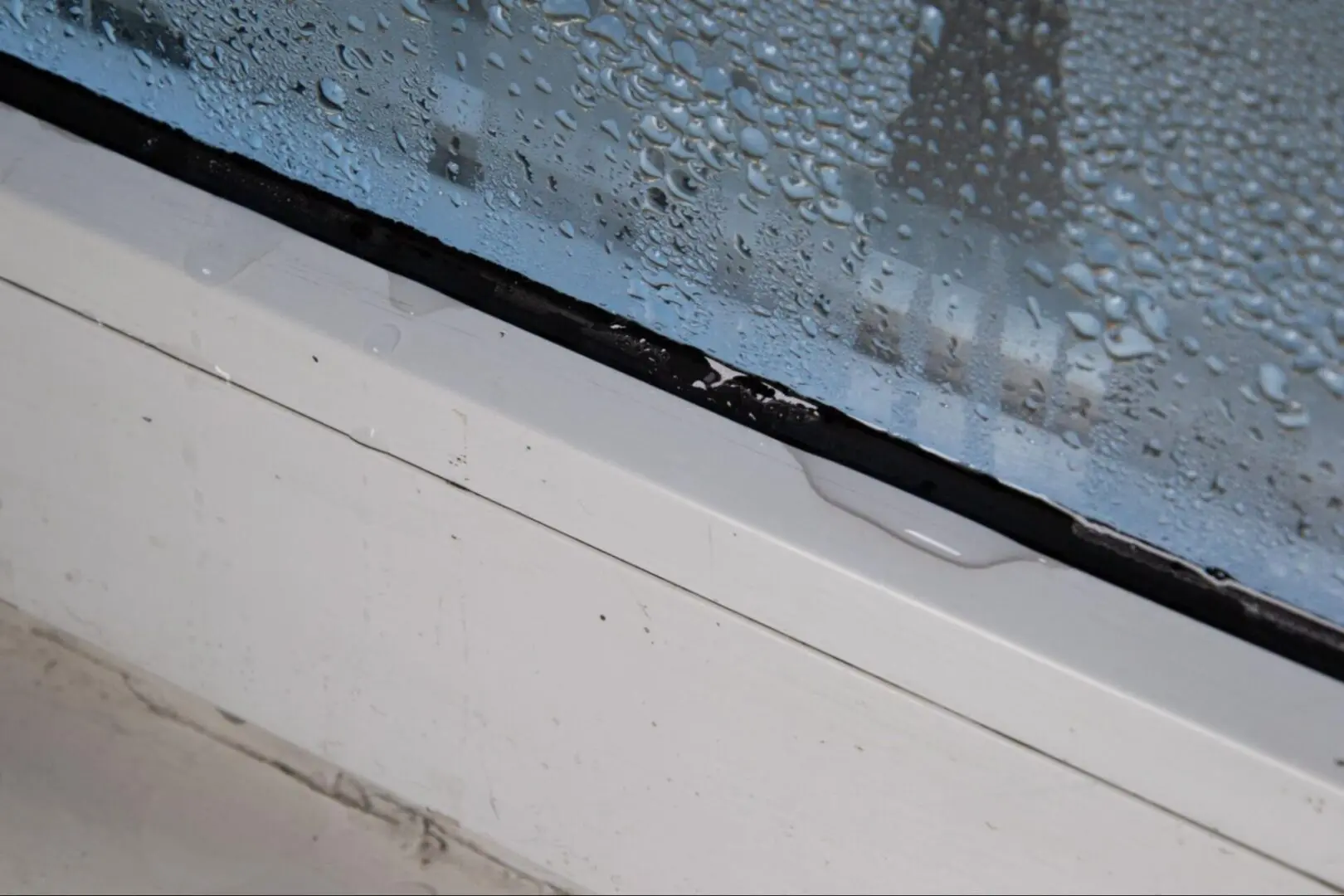
Windows are crucial to a home’s efficiency, comfort, and aesthetics. They’re essential for letting in natural light and significantly impact insulation, noise reduction, and curb appeal. Among window materials, vinyl windows stand out for their durability and energy efficiency, making them a popular choice for homeowners. Upgrading old vinyl windows can bring substantial benefits, enhancing the look of your home and its energy efficiency and indoor comfort. Recognizing when your windows need replacement can help maintain a more secure, cost-effective, and visually appealing living space.
Why Replacing Vinyl Windows Matter
Updating your vinyl windows is more than just a cosmetic improvement; it’s an investment in your home’s overall quality. Modern vinyl windows offer advanced energy-saving and enhanced security features. They can make a striking difference in curb appeal. By replacing aging windows, homeowners can elevate their property’s comfort, improve indoor temperatures, and reduce utility bills, all while increasing the property’s market value.
Key Signs It’s Time to Replace Your Vinyl Windows
Your vinyl windows are more than just a view to the outside; they are critical to your home’s comfort, energy efficiency, and curb appeal. If you’re experiencing difficulty operating your windows or visible wear and tear, they may be due for replacement. Here are some clear indicators to help determine when a vinyl window may be due for replacement:
Rising Energy Bills
One of the first signs your vinyl windows may need replacing is an unexplained rise in energy costs. Old, worn-out windows can let heat escape in the winter and cool air slip out during the summer. As a result, your heating and cooling systems have to work harder, causing your utility bills to climb. This is especially noticeable if you’ve sealed drafts but still feel temperature differences near your windows.
If your energy bills have steadily risen without an apparent reason, your vinyl windows may no longer be doing their job. Outdated or damaged windows allow drafts in, making it harder to keep your home at a comfortable temperature. You may feel drafts when standing near windows, which is a clear sign the insulation around the window has failed. New vinyl windows offer better insulation and help maintain a consistent indoor climate, lowering energy costs.
Difficulty Opening and Closing Windows
A key sign your vinyl windows are past their prime is if they become difficult to open or close. Windows should open and close smoothly, without any sticking or jamming. Over time, wear and tear on the frame or the mechanisms can make this process harder. Vinyl windows, while durable, aren’t immune to these issues, especially after years of use.
When windows start jamming or becoming difficult to operate, it’s not just an inconvenience. It can also be a safety hazard in emergencies where you must exit quickly. Additionally, this problem indicates the seals might be wearing down, leading to poor energy efficiency. Replacing old windows ensures smooth operation and better functionality for years to come.
Visible Condensation Between Window Panes
If you notice fog or condensation between the glass panes of your vinyl windows, it’s likely a sign of seal failure. Windows have an insulating gas layer between the panes, which helps regulate temperature. When this seal is compromised, moisture sneaks in, leading to condensation. Unfortunately, once this happens, the window’s insulation value drops significantly.
Condensation inside double-pane windows affects energy efficiency and the overall look of your home. Constant moisture trapped inside can even lead to mold growth if left unchecked. While cleaning the surface will not remove the moisture inside, replacing the window is the best way to restore proper insulation. This will eliminate foggy windows and improve your home’s energy efficiency.
Fading and Discoloration of Window Frames
Vinyl windows are designed to resist fading, but they can even show signs of wear after years of exposure to harsh weather and direct sunlight. Faded, discolored, or warped frames are not just cosmetic concerns. They can signal that the material has degraded, making the windowless efficient at keeping out the elements.
Discoloration can also detract from your home’s curb appeal, making your property look outdated. While some homeowners attempt to repaint or restore faded vinyl, this is often a temporary fix. New vinyl windows, however, are made from advanced materials that resist UV damage and retain their color and shape longer. If your window frames are significantly faded, it might be time to replace them for practical and aesthetic reasons.
Drafts and Cold Spots Near Windows
Another clear sign that your vinyl windows need replacement is the presence of drafts or cold spots. You might feel a slight breeze or noticeable coldness near your windows, even if they are fully closed. This suggests the seals have failed, and the window can no longer provide adequate insulation.
Drafts make your heating system work harder, increasing energy costs and creating an uncomfortable living space. In addition, cold air seeping through the window edges during winter can lead to chilly indoor temperatures. Replacing your old windows with new, well-sealed vinyl windows will improve insulation and create a more comfortable home environment.
 Outside Noise Becomes Noticeable Indoors
Outside Noise Becomes Noticeable Indoors
Do you hear more noise from the street than you used to? Your windows might be the problem. Older vinyl windows, especially single-pane models or those with deteriorated seals, don’t effectively block outside noise, which can lead to a more disruptive and less peaceful home environment.
Modern vinyl windows offer better soundproofing qualities thanks to improved materials and insulation. Installing new windows can make a noticeable difference in reducing unwanted noise from traffic, neighbors, or outdoor activities. If your home has become noisier, upgrading to windows with better sound insulation might be time.
Damaged or Cracked Window Glass
Cracks, chips, or visible damage to your window glass are other signs that it’s time to consider vinyl window replacement. Broken glass doesn’t just affect the appearance of your home; it also compromises energy efficiency and safety. Cracked windows are less effective at keeping the air inside, leading to drafts and higher energy costs. Replacing damaged windows is essential for your home’s energy performance and your family’s safety. Fresh vinyl windows restore your home’s aesthetic and provide a more substantial barrier against the elements.
Increasing Outdoor Airflow Inside Your Home
If you start noticing airflow from outside even when your windows are closed, it could be a sign that your vinyl windows are no longer sealing correctly. This often happens when the weather stripping or seals deteriorate over time. You might feel a breeze or airflow coming from around the edges of the window, which means the insulation has failed. Replacing the windows can help keep outdoor elements from affecting your indoor climate.
Water Leaks During Rain
If your windows allow water to leak inside during storms or heavy rain, this is a clear sign that they are no longer functioning correctly. Water leakage can lead to significant issues like mold growth, wood rot, and damage to your interior walls. Vinyl windows are designed to keep moisture out, so if you see water pooling around the window frame or dripping inside, it’s a strong indicator that a replacement is necessary. New windows will protect your home against moisture and prevent costly water damage.
Windows Let in UV Rays Damaging Your Furniture
Older windows often fail to block harmful UV rays from entering your home. Prolonged exposure to UV light can cause your furniture, carpeting, and curtains to fade over time. Modern vinyl windows come with UV protection that helps shield the inside of your home from these harmful rays.
If you’ve noticed fading upholstery, artwork, or flooring near your windows, it’s likely because they’re no longer protecting your interior as well as they should. By replacing your outdated windows, you can prevent further damage to your furniture and preserve the longevity of your home’s interior.
Draft-Proofing Your Home with New Vinyl Windows
Replacing old vinyl windows is one of the most effective ways to eliminate drafts and enhance insulation. Modern vinyl windows are built with advanced features like multi-pane glass and durable seals, which keep air from escaping or entering your home. This improves energy efficiency and creates a more comfortable living environment year-round.
Better Temperature Control Year-Round
New vinyl windows provide superior insulation that stabilizes indoor temperatures regardless of outdoor conditions. With advanced designs like double—or triple-pane glass and gas-filled layers between panes, these windows prevent heat transfer and cold. This means you’ll experience fewer temperature fluctuations, making maintaining a comfortable home in both summer and winter easier. Enhanced temperature control reduces the strain on your HVAC system, ultimately saving energy.
Noise Reduction for a More Peaceful Home
Aside from improving insulation, new vinyl windows also provide excellent noise reduction. If you live near a busy street or in a noisy neighborhood, modern vinyl windows can significantly reduce the amount of sound that enters your home. The same insulating qualities that prevent drafts also block outside noise. This results in a quieter, more peaceful environment indoors, allowing you to enjoy a higher quality of life without constant disruptions from the outside world.
Improved Air Quality and Comfort
Another benefit of upgrading your vinyl windows is the improved air quality in your home. Older windows can allow drafts that bring in dust, allergens, and outdoor pollutants. Replacing them with modern, tightly sealed windows can block these elements from entering your living space. The improved insulation keeps your home warmer and contributes to cleaner, healthier indoor air. This is particularly beneficial for people with allergies or respiratory issues, as it helps maintain a cleaner, more controlled environment.
Enhanced Security and Durability
New vinyl windows don’t just help with insulation and noise; they also offer increased security. Older windows may have weakened over time, making them easier to break or force open. Newer models come equipped with more robust materials, improved locking mechanisms, and reinforced frames, making them more resistant to damage or break-ins. In addition, modern vinyl is highly durable and resistant to warping or cracking, so your home remains protected for extended periods without frequent maintenance.
 Upgrade Comfort and Efficiency With Vinyl Window Replacement
Upgrade Comfort and Efficiency With Vinyl Window Replacement
When your vinyl windows show signs of wear, it’s more than just an inconvenience—it signals that your home’s comfort, energy efficiency, and safety are at risk. Replacing outdated or damaged windows can affect how your home feels and functions. Not only will you enjoy a more consistent indoor temperature, but you’ll also see the benefits of lower energy bills, improved noise reduction, and enhanced aesthetics.
Investing in new vinyl windows is an investment in your home’s future. With advanced insulation, better durability, and enhanced security, modern vinyl windows provide long-term value and peace of mind. Upgrading now means avoiding costly repairs later while ensuring your home remains a comfortable and inviting space for years.
Learn more about improving your home’s efficiency by visiting our Minnesota’s 1st Choice Replacement Windows and Doors blog.Â


 Outside Noise Becomes Noticeable Indoors
Outside Noise Becomes Noticeable Indoors Upgrade Comfort and Efficiency With Vinyl Window Replacement
Upgrade Comfort and Efficiency With Vinyl Window Replacement